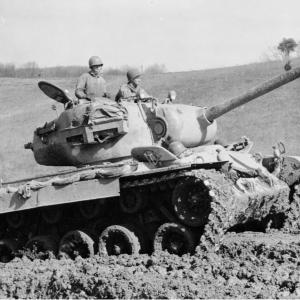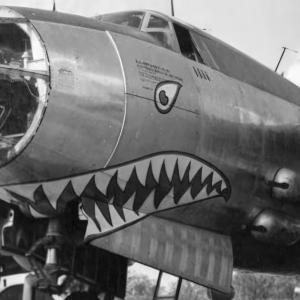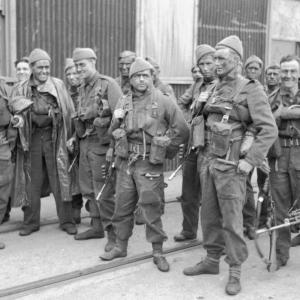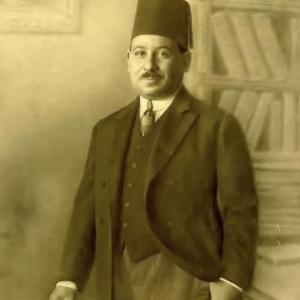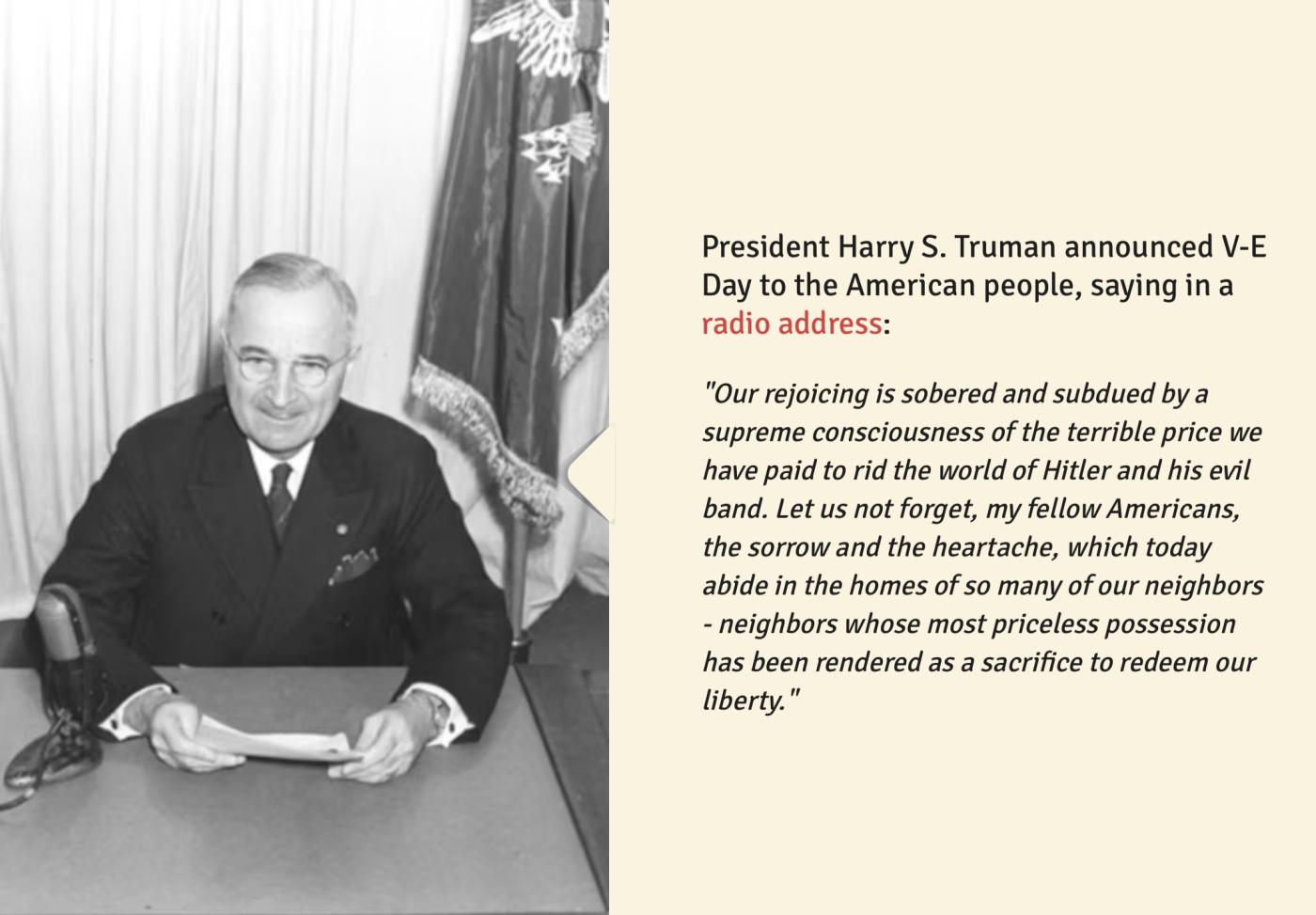
President Truman announced to Americans VE Day.
On May 8, 1945, President Harry S. Truman addressed the American people with the historic announcement that Nazi Germany had officially surrendered to the Allied forces, marking the end of World War II in Europe. This momentous occasion, now known as Victory in Europe Day, was celebrated with joy and relief across the United States and the Allied world. However, in his announcement, Truman emphasized that while the war in Europe had come to a close, the conflict in the Pacific against the Empire of Japan was far from over.
In a radio address from the White House, President Truman declared that this was a solemn but glorious hour, noting that he wished Franklin D. Roosevelt had lived to witness it. His tribute to his predecessor, who had died less than a month earlier on April 12, 1945, set a somber tone that reminded Americans of the cost of the victory and the responsibilities still ahead. Truman had taken office under sudden and dramatic circumstances, and this speech marked his first major address as Commander-in-Chief during a turning point in world history.
Truman informed the public that Germany had signed an unconditional surrender, effectively ending the war in Europe. The surrender had taken place on May 7 in Reims, France, and was ratified in Berlin on May 8. This brought an end to nearly six years of devastation across Europe, which had claimed millions of lives and reshaped the global order. Flags were flown, church bells rang, and citizens took to the streets in celebration. Yet, amid the celebrations, President Truman reminded Americans of the broader war still raging across the Pacific Ocean.
He stated clearly that the victory was only half-won and that the job must still be finished. With these words, he reminded the nation that Japan remained defiant and that the United States, along with its allies, would have to continue fighting to secure final peace. While Germany’s defeat marked a major milestone, Japanese forces still controlled vast territories across Asia and the Pacific, and their military showed little sign of surrendering.
Truman emphasized that the United States would maintain full military effort until complete victory was achieved. He urged Americans not to become complacent, warning that American soldiers were still dying in the Pacific. The president was fully aware that premature celebration could undermine morale or distract from the continued sacrifices being made by American service members fighting island by island against a deeply entrenched enemy.
In many ways, this speech marked the beginning of a transition—from total war to postwar planning, and from a focus on Europe to the challenges of defeating Japan. While American and Allied troops had pushed German forces into surrender, the Pacific War required a different kind of strategy—amphibious invasions, naval supremacy, and the threat of massive casualties. President Truman and his military advisers were already weighing options for a potential invasion of the Japanese home islands, which were expected to result in hundreds of thousands of Allied and Japanese deaths.
During his address, Truman called upon Americans to remain committed to war production, rationing, and support for the troops. Factories, workers, and military families were still essential to the ongoing effort. He also began to hint at the responsibilities that would follow the final Allied victory: the rebuilding of war-torn nations, the care for returning veterans, and the creation of a lasting peace.
Though Americans celebrated VE Day with cheers and parades, there was also reflection. More than 400,000 Americans had died in the war by that point. Many more were wounded, missing, or still serving overseas. Truman recognized this in his remarks, dedicating the victory to the servicemen and women who had fought and those who had fallen. He reminded listeners that the sacrifices made were not just for territorial gains, but for the preservation of freedom and human dignity.
Internationally, VE Day marked a significant shift. The Allies—particularly the United States, the United Kingdom, and the Soviet Union—now faced the challenge of managing postwar Europe. Tensions were already simmering beneath the surface, especially between the Soviet Union and the Western Allies, foreshadowing the Cold War to come. Truman’s leadership would soon be tested in diplomacy as much as on the battlefield.
As the war continued in the Pacific, Truman's government intensified its efforts. Within weeks, plans for the final stages of the Pacific campaign were underway. American forces were fighting fiercely on Okinawa, and the development of the atomic bomb under the top-secret Manhattan Project was nearing completion. Truman would soon face one of the most consequential decisions in world history—whether to use the atomic bomb to hasten Japan’s surrender and avoid a prolonged and bloody invasion.
In closing his VE Day address, President Truman struck a hopeful but resolute tone. He asked the American people to stay united and committed until final victory could be claimed. The joy of victory in Europe was real, but tempered by the knowledge that the ultimate peace could only be secured once Japan had been defeated and the world could finally begin the process of healing.

